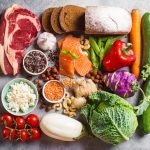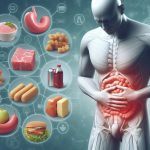Feeling constantly tired or struggling with unexplained mood swings might seem like everyday problems. However, they could actually be an urgent message from your body. In fact, you could be missing essential vitamins. Since vitamins play a crucial role in keeping our bodies functioning optimally, their absence can have noticeable effects. Despite their importance, vitamin deficiencies are surprisingly common. What’s even more surprising is how easily these problems can be prevented with the right diet or supplements. So, how do you know if your body is crying out for help? Let’s explore 10 hidden signs of vitamin deficiency that you shouldn’t ignore.
1. Persistent Fatigue and Weakness
One of the most significant signs of vitamin B deficiency, particularly B12 and folate (B9), is persistent fatigue. Unlike the usual tiredness after a busy day, this exhaustion doesn’t fade with rest. Moreover, vitamin B12 is vital for producing red blood cells, which transport oxygen throughout the body. Without adequate oxygen, your body struggles to generate the energy necessary for daily tasks.
In fact, studies show that vitamin B12 supplements can help reduce fatigue, particularly in individuals with conditions like pernicious anemia or dietary restrictions such as veganism. Furthermore, folate is critical for DNA synthesis, directly influencing muscle performance and brain function. Without enough folate, you may experience mental fog and physical weakness.
2. Dry Skin and Brittle Hair
Dry skin can be a sign of deficiencies in vitamins A, C, or E. Vitamin A is essential for skin cell production and repair. Additionally, vitamin C plays a key role in collagen synthesis, keeping the skin firm and hydrated. In addition, vitamin C acts as a potent antioxidant, shielding skin cells from environmental stressors like UV rays. Without sufficient vitamin C, collagen production slows, which can result in premature aging and dryness.
Furthermore, vitamin E helps protect the skin’s lipid barrier, which prevents moisture loss. A weakened barrier allows moisture to escape, leading to dry skin and brittle hair. When vitamin E levels are low, your skin may become more susceptible to environmental irritants.
3. Frequent Infections
Vitamin C is well-known for boosting the immune system. It improves the function of white blood cells, which are the body’s primary defense against infections. When vitamin C levels are low, these immune cells become less effective, making it easier for infections to develop.
Similarly, vitamin D is essential for immune health. It helps immune cells recognize and eliminate pathogens more effectively. Without adequate vitamin D, your body’s defense mechanisms are weakened, which increases the risk of infections.
4. Mouth Ulcers or Cracks at the Corners of the Mouth
Deficiencies in vitamin B and folate can lead to mouth ulcers and cracks at the corners of the mouth, a condition known as angular cheilitis. Vitamin B2 (riboflavin) is essential for cell growth and the health of mucous membranes in the mouth. Therefore, when you lack riboflavin, the tissues in your mouth and lips struggle to regenerate, leading to sores and cracks.
Additionally, vitamin B6 plays a role in protein metabolism and neurotransmitter production, which are vital for overall cellular health. A deficiency in this vitamin can further contribute to these issues.
5. Bleeding Gums
Bleeding gums can indicate a lack of vitamin C. This essential nutrient supports the production of collagen, which helps maintain the connective tissue in your gums. Without enough vitamin C, your gums may become inflamed, tender, and prone to bleeding. In severe cases, this deficiency can lead to scurvy, a condition that causes gums to weaken and teeth to loosen.
Moreover, while scurvy is rare, mild vitamin C deficiencies are more common than people realize and can still cause significant gum issues.
6. Vision Problems, Especially at Night
Night blindness is often a result of vitamin A deficiency. This vitamin is crucial for the production of rhodopsin, a protein in the retina that helps you see in low light. Without enough vitamin A, your eyes can’t adjust properly to darkness, leading to impaired night vision.
Moreover, vitamin A also plays a crucial role in maintaining the health of the cornea and conjunctiva, which protect the eye and ensure clear vision. A deficiency in vitamin A can cause these tissues to dry out, making them more vulnerable to damage and further impairing your vision.
7. Poor Wound Healing
Vitamin K and zinc are critical for wound healing. Vitamin K helps activate proteins involved in blood clotting, while zinc supports cellular function necessary for tissue repair. Without enough vitamin K, blood clotting becomes inefficient, leading to prolonged bleeding and delayed healing. Zinc is essential for DNA synthesis and cell division. A deficiency in zinc can slow down the formation of new tissue, delaying wound healing.
8. Pins and Needles Sensation
A pins and needles sensation, also known as paresthesia, may signal a vitamin B12 deficiency. B12 is crucial for producing and maintaining myelin, the protective layer surrounding your nerves. When B12 levels are too low, myelin starts to deteriorate, disrupting nerve signals and leading to the sensation of tingling, especially in the hands and feet.
Individuals following a vegan or vegetarian diet, as well as those with absorption issues, may have difficulty getting sufficient B12. Therefore, it is essential to monitor vitamin B12 levels carefully.
9. Mood Changes and Depression
Vitamin B6 and folate (B9) are essential for brain function and mood regulation. Vitamin B6 helps produce serotonin and dopamine, neurotransmitters that stabilize mood. Without enough B6, your body struggles to produce these chemicals, leading to mood swings, irritability, and even depression.
Furthermore, folate also plays a role in brain chemistry. A deficiency can increase inflammation in the brain, which may negatively affect mood and cognitive function.
10. Brittle Nails and Hair Loss
Brittle hair and nails are often a sign of biotin (vitamin B7) deficiency. Biotin helps convert amino acids into the proteins necessary to strengthen hair follicles and maintain nail health. Without enough biotin, your hair may become fragile, leading to breakage and hair loss.
Moreover, certain populations, including those with genetic disorders affecting biotin metabolism or people who consume raw egg whites, are at a higher risk of biotin deficiency.
Diet Plan to Address Vitamin Deficiencies
To address these deficiencies, here’s a diet plan focusing on foods that provide essential vitamins:
- Vitamin B12: Salmon (5 mcg per 3 oz) and beef liver (60 mcg per 3 oz).
- Vitamin B6: Chickpeas and turkey breast (2 mcg per serving).
- Folate: Spinach (263 mcg per cup) and black beans (256 mcg per cup).
- Biotin: Eggs (10 mcg per egg) and almonds (15 mcg per ¼ cup).
- Vitamin C: Oranges (70 mcg per medium orange) and bell peppers (95 mcg per ½ cup).
- Vitamin D: Fortified milk (120 IU per cup) and sardines (164 IU per 3 oz).
- Vitamin A: Sweet potatoes (1,096 mcg per medium potato) and carrots (1,070 mcg per cup).
- Vitamin E: Spinach (4 mcg per cup) and sunflower seeds (7 mcg per oz).
- Vitamin K: Kale (547 mcg per cup) and Brussels sprouts (78 mcg per ½ cup).
- Zinc: Oysters (74 mcg per 3 oz) and pumpkin seeds (2 mcg per oz).
- Iron: Lean beef (2 mcg per 3 oz) and lentils (7 mcg per cup).
Conclusion
In conclusion, the signs of vitamin deficiencies can often go unnoticed, yet they have a significant impact on overall health and well-being. From persistent fatigue to dry skin, brittle hair, and even nerve-related issues like paresthesia, your body may be signaling a lack of essential nutrients. Addressing these deficiencies early on through a balanced diet or supplements can prevent more serious health complications in the future.
Remember, moderation is key, and it’s always best to consult with a healthcare professional before making any significant dietary changes.









